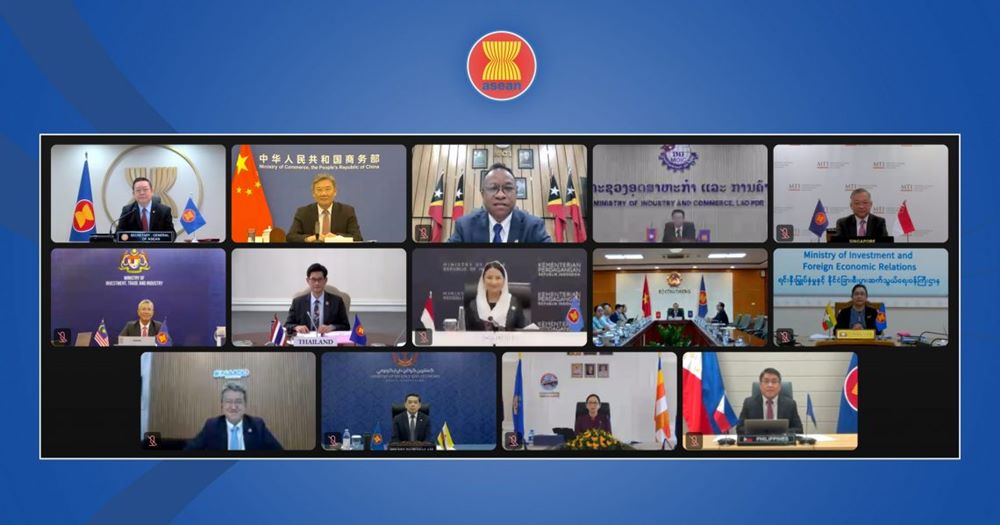Jakarta, May 20 (AseanAll) — The Special AEM-Ministry of Commerce (AEM-MOFCOM) Consultation was held on 20 May 2025 via videoconference.

The Consultation was co-chaired by Tengku Datuk Seri Utama Zafrul Aziz, Minister of Investment, Trade and Industry of Malaysia, and Wang Wentao, Minister of Commerce of China. The Meeting also welcomed the participation of Filipus Nino Pereira, Minister of Commerce and Industry, Democratic Republic of Timor-Leste as an observer.
The Meeting exchanged views on regional and global economic challenges that could likely impact supply chain resiliency in the region, including the current global trade tensions. These challenges disrupt the global trade order, exacerbate trade tensions, and weaken confidence in the rules-based Multilateral Trading System (MTS).
The Meeting further recognised such challenges will disrupt trade and investment flows, as well as supply chains, affecting businesses and consumers worldwide. It will also impact economic security and stability, affect livelihoods of millions of people in the region, and hinder economic progress, particularly in developing and least-developed countries.
The Meeting affirmed that ASEAN and China are each other’s largest trading partners. The Meeting welcomed the full conclusion of the ASEAN-China Free Trade Area (ACFTA) 3.0 Upgrade Negotiations. The Meeting noted that the ACFTA remains the cornerstone of ASEAN-China trade and economic relations, as such, the Meeting reaffirmed the commitment on ensuring that the ACFTA stays relevant, future-ready, and responsive to global challenges. The ACFTA 3.0 Upgrade is envisaged to deliver value-added elements through the inclusion of new areas, such as digital economy, green economy, supply chain connectivity, amongst others. The Meeting also reaffirmed the target to sign the ACFTA 3.0 Upgrade Protocol by this year, which is one of Malaysia’s Priority Economic Deliverables (PEDs) of its 2025 ASEAN Chairmanship.
The Meeting also recognised the importance of expanding trade linkages through initiatives such as the Regional Comprehensive Economic Partnership (RCEP) Agreement. The Meeting noted that efforts are ongoing to implement, improve and expand the Agreement, including finalising the procedures to inform work on the accession of aspirant economies of this Agreement.
The Meeting reaffirmed the central and indispensable role of the World Trade Organization (WTO) at the core of the rules-based multilateral trading system, which provides a predictable, transparent, non-discriminatory and open global trading system. On the 30th anniversary of the WTO, the Meeting reiterated the support to work towards the necessary reform of the WTO to improve all its functions, and committed to delivering pragmatic, development-oriented outcomes at the Fourteenth Ministerial Conference to be convened in 2026 in Cameroon. The Meeting expressed concern over unilateral and protectionist measures and underscored support for collective action to uphold the MTS, utilise the WTO for constructive engagement and to seek cooperative solutions, to address global trade concerns.
The Meeting reaffirmed the commitment to address trade concerns with relevant countries and resolve differences through consultations based on equality, mutual respect, and mutual benefits. The Meeting called for further leveraging ASEANChina trade and economic cooperation to address uncertain disruptions.